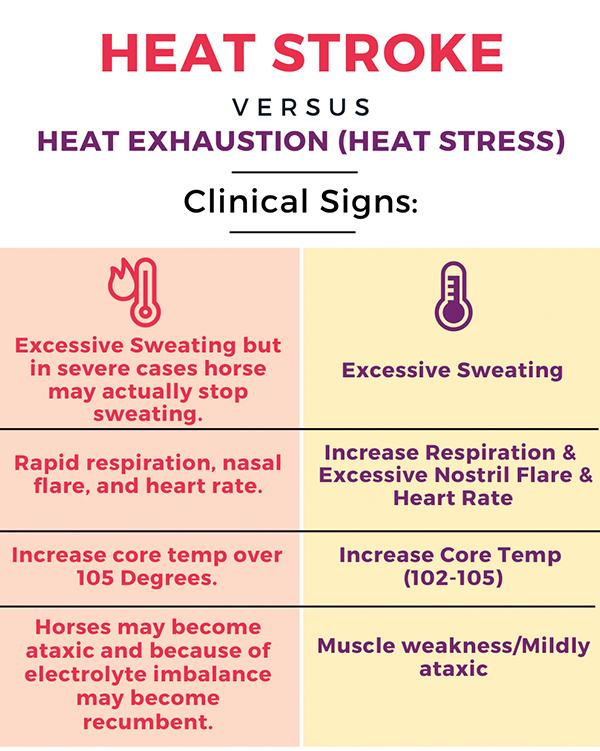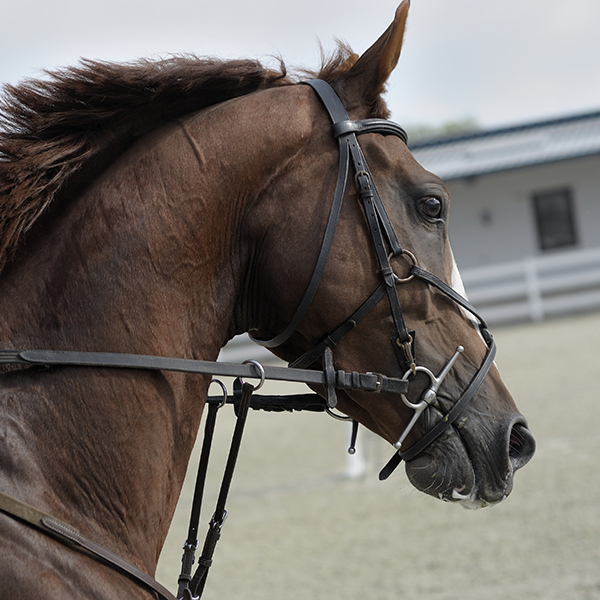The extreme southern heat and humidity significantly increases the potential for heat-related illnesses, heat exhaustion and heat stroke in horses.
The mid-south heat and humidity is relentless on a good day. Here lately we’ve endured multiple excessive heat warnings, with dangerously hot conditions and heat index values over 110 degrees. This extreme heat and humidity significantly increases the potential for heat-related illnesses, heat exhaustion and heat stroke, particularly in those individuals working or participating in outdoor activities. We’re cautioned to limit time outdoors, drink plenty of water, and bring pets inside. But what about our horses: Can they be affected by the heat too?
The short answer is YES; horses can also experience both heat exhaustion (stress) and heat stroke just like humans. Also, just like us, signs of heat-related illness can range from mild to severe and life-threatening, so it’s important horse owners and caregivers know and recognize them this summer.
Dr. Mark Akin, DVM, of Akin Veterinary Services states some horses are at a higher risk for heat exhaustion and heat stroke. These groups include older horses, overweight horses, metabolic horses (such as those with Cushings), horses who have trouble sweating (anhidrosis), horses being transported in the heat with poor trailer ventilation, and horses housed in poorly ventilated stalls.
Dr. Jennifer Dunlap, DVM, of Dunlap Equine Services has several suggestions to help ward off heat stress and heat stroke in your horses when the mercury rises to dangerous levels this summer. First, she recommends against using small water troughs and metal water troughs and go with rubber or plastic troughs, that are at least 100 gallons to keep the water cooler. She advises us to try to keep those in the shade as well. When smaller or metal troughs overheat in the sun, the water can get so hot it’s actually painful to the horse, and it will stop drinking. Also Dr. Dunlap states your horse should have access to a white salt brick at all times. “Horses lose a lot of sodium chloride through their sweat, and loss of electrolytes can slow gut motility which can lead to metabolic colic, gut shut down, and overheating,” she explains.
If you have to haul, Dr. Dunlap says 2:00 AM is the time she prefers if it’s a long trip. Although this may not be the most convenient time to travel, the roads are cooler and there is less traffic to potentially heat the roads. Finally, Dr. Dunlap advises us to keep a rectal thermometer on hand. She and her staff use Vicks fast read digital thermometers. She says, “If your horse is huffing and puffing and its temperature is over 102, call your vet. Temperatures of 105 and above can be lethal.”
According to Dr. Akin, the following guidelines are a good rule of thumb when it comes to preventing equine heat-related illnesses. First, add the temperature (in Fahrenheit) and relative humidity. If this number is below 120, it’s ok to exercise and ride. If the number is between 130-150, it’s ok to exercise your horse, but make sure it is well hydrated and try to ride during the coolest part of the day, either early in the morning or late evening. If you get 170 or higher when you add the temperature + relative humidity, you must use extreme caution exercising your horse. “If you have a choice, don’t,” Dr. Akin states.
Dr. Akin provides us with a informational table on how to differentiate between heat exhaustion and heat stroke based on the clinical signs your horse is displaying.

According to Dr. Akin, “It is important to know that heat stroke is an absolute emergency, and the main goal is to get the horse’s core temperature down using a water hose, alcohol sponging, and medications given to decrease temperature (Banamine, Phenylbutazone, or Dipyrone). A lot of these cases require IV fluids. Moving to a cooler environment always helps.
A way to treat heat exhaustion includes cooling the horse off with a water hose (starting the process from the feet and slowly working your way up). Put a fan on the horse. Sponge off your horse using 3 gallons of water with 1 pint of alcohol added.”









